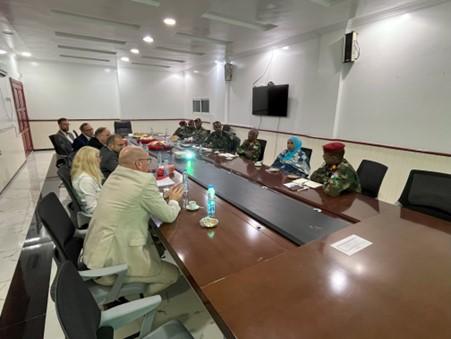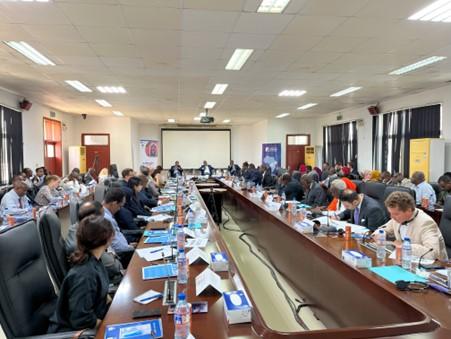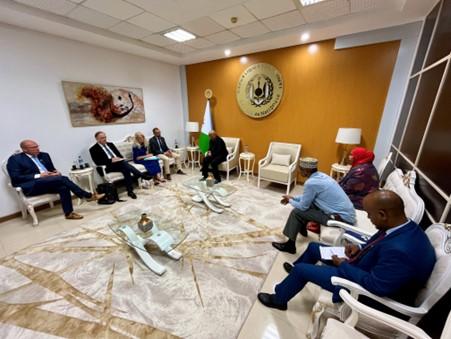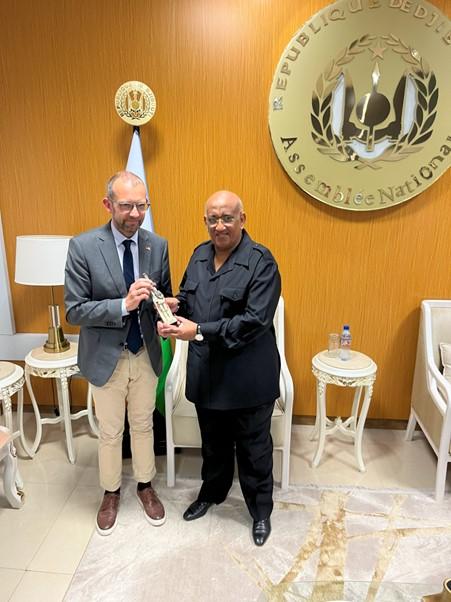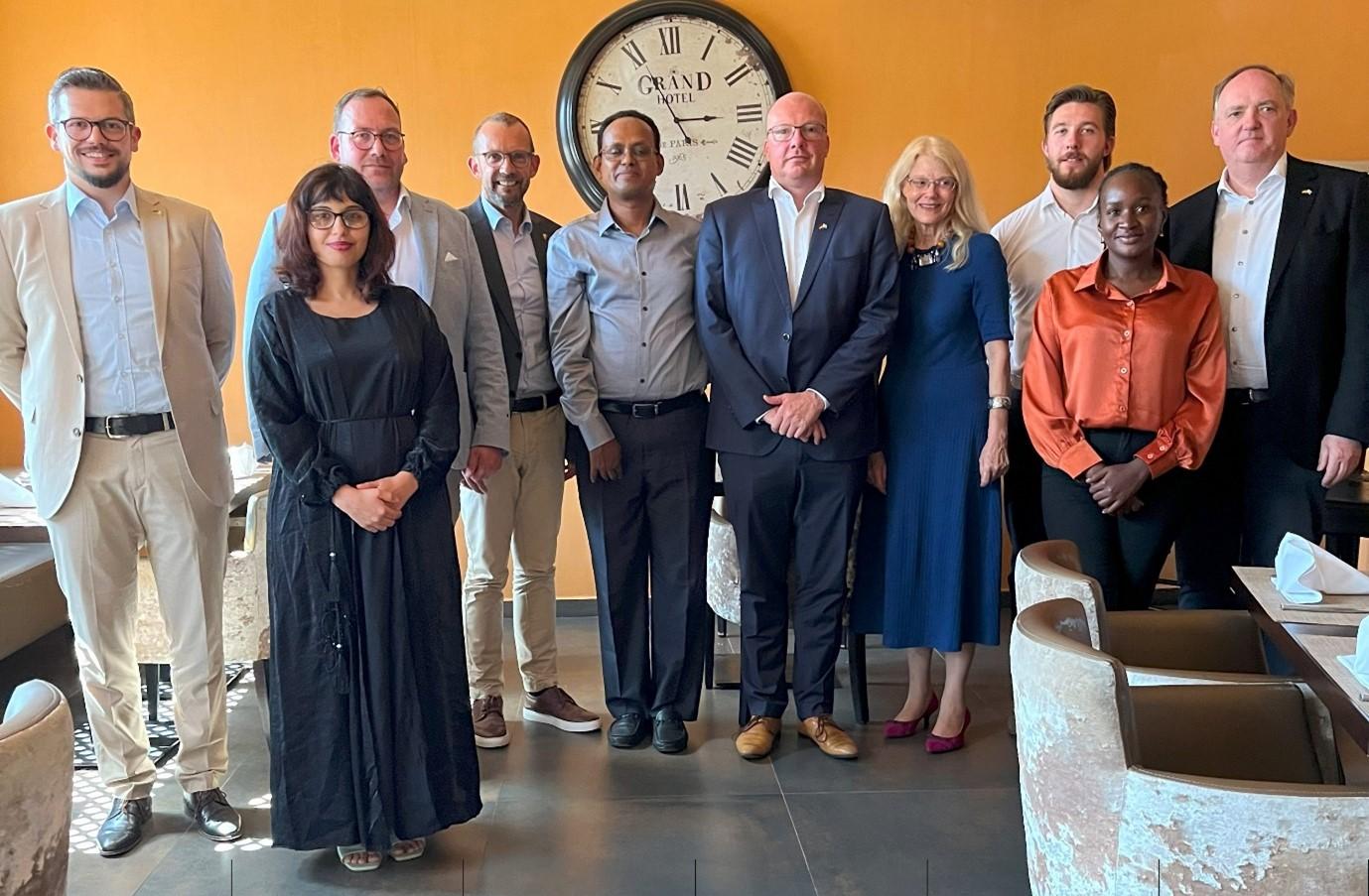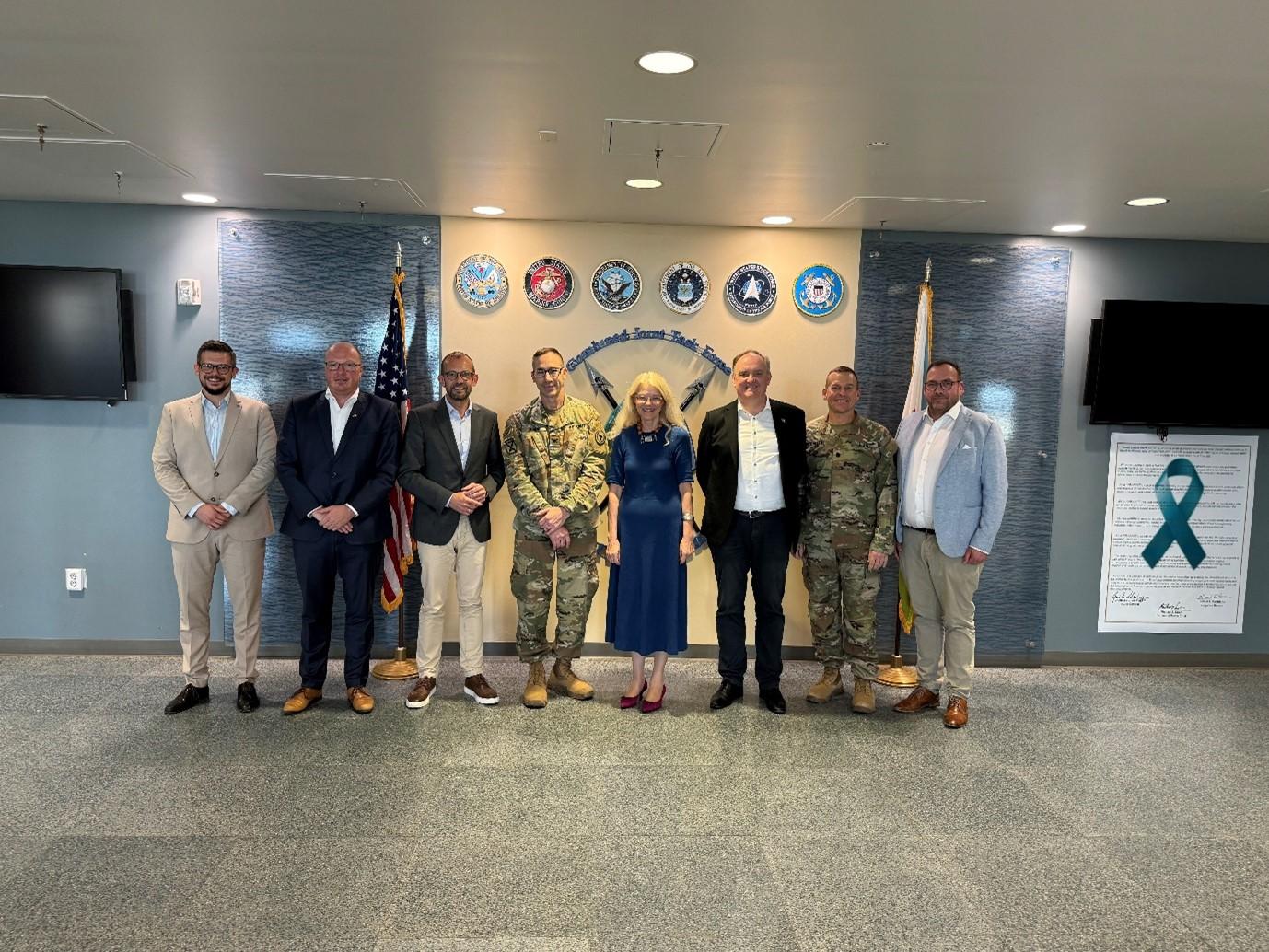East Africa, and the Horn of Africa in particular, is struggling with a multitude of internal and in-terstate conflicts, weak statehood, a high potential for flight and migration, Islamist terrorism, piracy, and organised crime. In addition to these challenges, the Horn of Africa is characterised by its special geopolitical and geostrategic relevance. Together with the coast of Somalia, the coast of Djibouti borders the Indo-Pacific region and lies opposite the Arabian Peninsula on the Bab al-Mandab strait, which forms the entrance to the Red Sea. The recent attacks by the Irani-an-backed Yemeni Houthi militia on civilian merchant vessels in the region have highlighted its importance for Germany and Europe. Until the attacks began, twelve percent of world trade passed through the Bab al-Mandab strait via the Red Sea and the Suez Canal to the Mediterrane-an. Europe even received 99 percent of container imports from its most important trading part-ner China via this trade route. To protect civilian shipping, the European Union set up the mission EUNAVFOR Aspides, in which the German Navy is also taking part, most recently with the frigate Hessen. The mission is considered to be the most dangerous deployment of the German Navy since the Bundeswehr was founded and is aimed at protecting fundamental national interests.
The programme of the trip began upon arrival at Djibouti International Airport with a welcome by Dr Heike Fuller, Ambassador of the Federal Republic of Germany in Djibouti, and Nils Wörmer, Head of the RP SIPODI East Africa, together with some team members of the regional pro-gramme. The first stop was a visit to the headquarters of the Djibouti Armed Forces. Accompa-nied by Ambassador Dr Heike Fuller, a meeting was held with Colonel Ibrahim Zakaria Jnr, the Director of Foreign Relations of the Djibouti Armed Forces. After a short city tour with a focus on Djibouti's port facilities and the numerous international military bases, further discussions took place at the German Embassy. On the evening of the first day, the delegation attended a stand-ing reception for experts and invited Djiboutian guests of the Djibouti Security Symposium 2024 that was taking place the following day. This symposium was organised by the RP SIPODI East Africa of KAS in cooperation with the Institut des Études Diplomatiques (Institute for Diplomatic Studies; IED) of the Djiboutian Ministry of Foreign Affairs. The reception was followed by a briefing by Colonel Ullrich Timmermann, Defence Attaché at the Embassy of the Federal Repub-lic of Germany in Addis Ababa, who is also accredited in Djibouti.
The following day, the delegation took part in the Djibouti Security Symposium 2024, where pressing security issues for the region were discussed. These included the future of Somalia af-ter the African Union Transition Mission in Somalia (ATMIS), whose forces will be fully withdrawn by the end of 2024. Somalia continues to face the threat of the Islamist terrorist militia al-Shabaab, which poses a serious threat to the existence of the Somali state. The geopolitical and geo-economic significance of the Red Sea was also discussed, as were possible scenarios for the civil war in Sudan. The Sudan conflict has become the largest humanitarian crisis in the world with more than 10 million refugees and internally displaced persons. In his welcoming address at the opening of the symposium, Mr Röwekamp referred to Germany's long history as a partner of the countries in the Horn of Africa. Germany has participated in various UN missions with military or police personnel, in the EU missions EUNAVFOR Atalanta and EUTM Somalia and cooperates in the training of Djiboutian police forces. Mr Röwekamp stressed that Djibouti is an important partner for Germany, especially because of its stability in a region in turmoil. He emphasised that it is a great pleasure for him to be in Djibouti as a member of the German Bundestag and to dis-cuss regional and security policy issues with people from East Africa. The day ended with a din-ner with Ambassador Fuller and a fruitful exchange about German and Djiboutian politics and the possibilities and importance of German engagement in the Horn of Africa.
The third and final day of the visit began with a visit to the Djiboutian parliament, the Assemblée Nationale, including a discussion about opportunities for German Djiboutian cooperation with the Speaker of the Parliament, Dileita Mohamed Dileita. This was followed by a visit to the European Union delegation in Djibouti and an exchange with EU Ambassador Sylvie Tabesse. At lunch with the KAS partners, Dr Aden Omar Abdillahi, the Director of the Institut d'Études Politiques et Stra-tégiques (Institute for Political and Strategic Studies; IEPS) and his research assistant, Dr Zohra Mohamed Omar, the delegation gained further insights into the Djiboutian perspective on politi-cally relevant issues in the Horn of Africa. The last part of the programme was a visit to Camp Lemonnier, the expeditionary base of the United States Navy on the African continent and the base of the Combined Joint Task Force - Horn of Africa (CJTF-HOA) of the United States Africa Command (USAFRICOM). The guided tour included an exchange with officers of the US Armed Forces. After this, the delegation travelled back to Europe.
About this series
The Konrad-Adenauer-Stiftung, its educational institutions, centres and foreign offices, offer several thousand events on various subjects each year. We provide up to date and exclusive reports on selected conferences, events and symposia at www.kas.de. In addition to a summary of the contents, you can also find additional material such as pictures, speeches, videos or audio clips.



